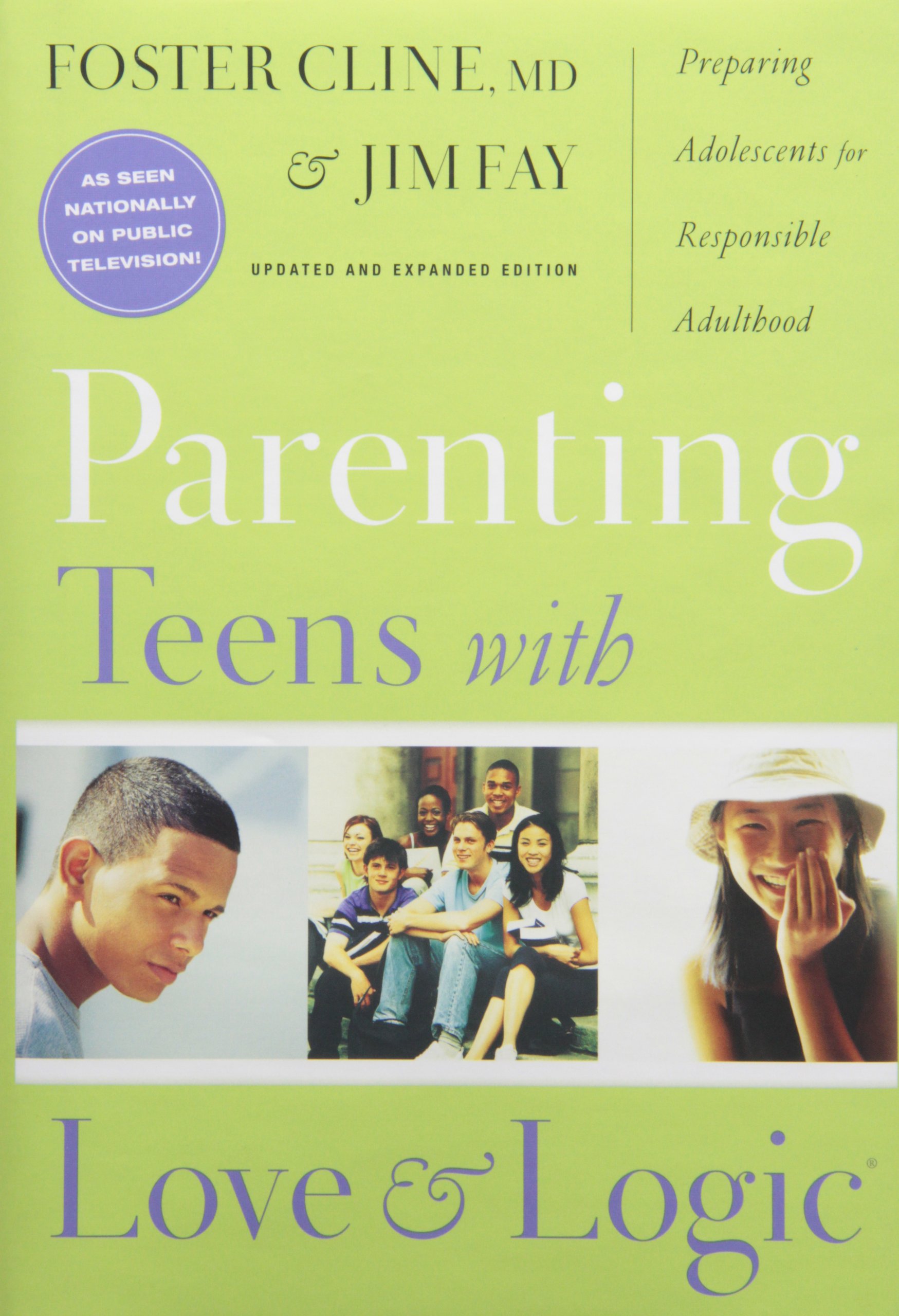 |  | Parenting Teens with Love And Logic
Author: Foster Cline, MD and Jim Fay
Publisher: NavPress Publishing (April 19, 2006)
Paperback: 320 pages
ISBN-10: 1576839303
ISBN-13: 978-1576839300


|
Book DescriptionNavigating the parent-teen relationship is difficult. Teens need their parents to teach and guide them to make responsible decisions. Mood swings, arguments, and the pressures of school and peers can strain relationships even further. Parenting Teens with Love and Logic covers a broad scope of real-life issues including divorce, ADD, addictions, sex, peer pressure, school and street violence, and breaking the law. In facing these tough subjects, the book offers parents distinct ideas to help them set limits, teach important skills, and foster maturity in their teenagers.
Chapters:
1. Teenagers 101: Welcome to Parenting Graduate School
2. Love and Logic Parenting: Will It Work with Teenagers?
3. Back to the Basics, Part One: Training Teens to Act Responsibly
4. Back to the Basics, Part Two: Treating Teenagers as Responsible Adults
5. Fasten Your Seat Belt and Enjoy the Ride
6. Understanding Teens from the Inside Out: Internal Changes in Adolescence
7. Understanding Teens from the Outside In: External Changes in Adolescence
8. Ready, Set—Off into the Real World
9. How to Use Love and Logic Pearls
About the AuthorsFoster Cline, M.D. is an world renowned psychiatrist, consultant to mental health organizations, parents groups, and schools across North America. Dr. Cline graduated cum laude from the University of Colorado and earned his MD degree from the University of Colorado Medical School in Denver. He spent his medical internship in the Gorgas Hospital, a federal hospital in the Panama Canal Zone. He completed his adult and child psychiatric residencies at the University of Washington in Seattle. Cline also is a grandparent, as well as the father of three biological children, one adopted child, and several foster children.
Jim Fay brings with him over thirty years of experience as an educator, school principal, and father of three grown children. Recognized as one of America's top educational consultants, he has won many awards in the educational field.





 Poll
Poll
